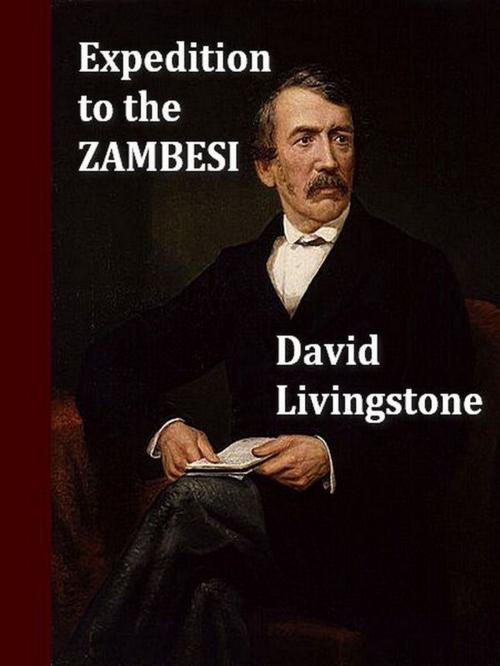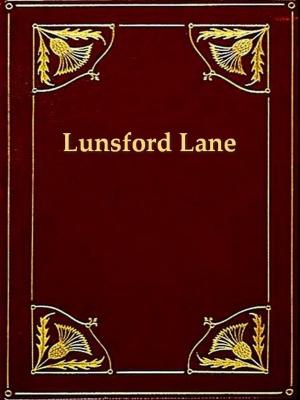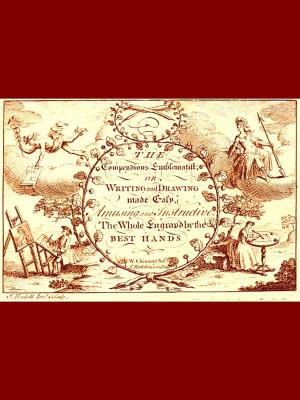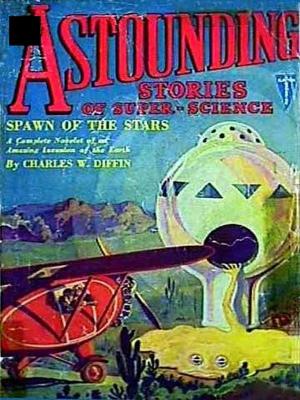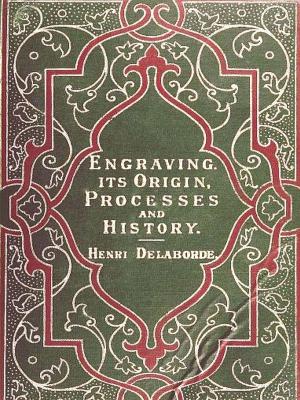A Popular Account of Dr. Livingstone’s Expedition to the Zambesi and Its Tributaries
And the Discovery of Lakes Shirwa and Nyassa 1858-1864
Nonfiction, History, Africa, Biography & Memoir, Historical| Author: | David Livingstone | ISBN: | 1230000176241 |
| Publisher: | VolumesOfValue | Publication: | September 9, 2013 |
| Imprint: | Language: | English |
| Author: | David Livingstone |
| ISBN: | 1230000176241 |
| Publisher: | VolumesOfValue |
| Publication: | September 9, 2013 |
| Imprint: | |
| Language: | English |
A Popular Account of Dr. Livingstone’s Expedition to the Zambesi and Its Tributaries:
And the Discovery of Lakes Shirwa and Nyassa 1858-1864
This edition features a linked Table of Contents and Footnotes.
CONTENTS
INTRODUCTION
Objects of the Expedition — Personal Interest shown by Naval Authorities — Members of the Zambesi Expedition.
CHAPTER I
Arrival at the Zambesi — Rebel Warfare — Wild Animals — Shupanga — Hippopotamus Hunters — The Makololo — Crocodiles.
CHAPTER II
Kebrabasa Rapids — Tette — African fever — Exploration of the Shiré — Discovery of Lake Shirwa.
CHAPTER III
The Steamer in difficulties — Elephant hunting — Arrival at Chibisa’s — Search for Lake Nyassa — The Manganja country — Weavers and smelters — Lake Pamalombé.
CHAPTER IV
The Upper Shiré — Discovery of Lake Nyassa — Distressing exploration — Return to Zambesi — Unpleasant visitors — Start for Sekeletu’s Country in the interior.
CHAPTER V
Magnificent scenery — Method of marching — Hippopotamus killed — Lions and buffalo — Sequasha the ivory-trader.
CHAPTER VI
Illness — The Honey-guide — Abundance of game — The Baenda pezi — The Batoka.
CHAPTER VII
The Victoria Falls of the Zambesi — Marvellous grandeur of the Cataracts — The Makololo’s town — The Chief Sekeletu.
CHAPTER VIII
Life amongst the Makololo — Return journey — Native hospitality — A canoe voyage on the Zambesi.
CHAPTER IX
The waterbuck — Disaster in Kebrabasa rapids — The “Ma Robert” founders — Arrival of the “Pioneer” and Bishop Mackenzie’s party — Portuguese slave-trade — Interference and liberation.
CHAPTER X
The Lake tribes — The Mazitu — Quantities of elephants — Distressing journey — Detention on the Shiré.
CHAPTER XI
Arrival of H.M.S. “Gorgon” — Dr. Livingstone’s new steamer and Mrs. Livingstone — Death of Mrs. Livingstone — Voyage to Johanna and the Rovuma — An attack upon the “Pioneer’s” boats.
CHAPTER XII
Return to the Zambesi — Bishop Mackenzie’s grave — Frightful scenes with crocodiles — Death of Mr. Thornton — African poisons — Recall of the Expedition.
CHAPTER XIII
Dr. Livingstone’s further explorations — Effects of slave-trade — Kirk’s range — Ajawa migration — Native fishermen — Arab slave-crossing — Splendid highlands.
CHAPTER XIV
Important geographical discoveries in the Wabisa countries — Cruelty of the slave-trade — The Mazitu — Serious illness of Dr. Livingstone — Return to the ship.
CHAPTER XV
Confidence of natives — Bishop Tozer — Withdrawal of the Mission party — The English leave — Hazardous voyage to Mosambique — Dr. Livingstone’s voyage to Bombay — Return to England.
FOOTNOTES
About the Author
"David Livingstone (1813 – 1873) was a Scottish Congregationalist pioneer medical missionary with the London Missionary Society and an explorer in Africa. His meeting with H. M. Stanley on 10 November 1871 gave rise to the popular quotation "Dr. Livingstone, I presume?"
Perhaps one of the most popular national heroes of the late 19th century in Victorian Britain, Livingstone had a mythic status, which operated on a number of interconnected levels: Protestant missionary martyr, working-class "rags to riches" inspirational story, scientific investigator and explorer, imperial reformer, anti-slavery crusader, and advocate of commercial empire." --Wikipedia
A Popular Account of Dr. Livingstone’s Expedition to the Zambesi and Its Tributaries:
And the Discovery of Lakes Shirwa and Nyassa 1858-1864
This edition features a linked Table of Contents and Footnotes.
CONTENTS
INTRODUCTION
Objects of the Expedition — Personal Interest shown by Naval Authorities — Members of the Zambesi Expedition.
CHAPTER I
Arrival at the Zambesi — Rebel Warfare — Wild Animals — Shupanga — Hippopotamus Hunters — The Makololo — Crocodiles.
CHAPTER II
Kebrabasa Rapids — Tette — African fever — Exploration of the Shiré — Discovery of Lake Shirwa.
CHAPTER III
The Steamer in difficulties — Elephant hunting — Arrival at Chibisa’s — Search for Lake Nyassa — The Manganja country — Weavers and smelters — Lake Pamalombé.
CHAPTER IV
The Upper Shiré — Discovery of Lake Nyassa — Distressing exploration — Return to Zambesi — Unpleasant visitors — Start for Sekeletu’s Country in the interior.
CHAPTER V
Magnificent scenery — Method of marching — Hippopotamus killed — Lions and buffalo — Sequasha the ivory-trader.
CHAPTER VI
Illness — The Honey-guide — Abundance of game — The Baenda pezi — The Batoka.
CHAPTER VII
The Victoria Falls of the Zambesi — Marvellous grandeur of the Cataracts — The Makololo’s town — The Chief Sekeletu.
CHAPTER VIII
Life amongst the Makololo — Return journey — Native hospitality — A canoe voyage on the Zambesi.
CHAPTER IX
The waterbuck — Disaster in Kebrabasa rapids — The “Ma Robert” founders — Arrival of the “Pioneer” and Bishop Mackenzie’s party — Portuguese slave-trade — Interference and liberation.
CHAPTER X
The Lake tribes — The Mazitu — Quantities of elephants — Distressing journey — Detention on the Shiré.
CHAPTER XI
Arrival of H.M.S. “Gorgon” — Dr. Livingstone’s new steamer and Mrs. Livingstone — Death of Mrs. Livingstone — Voyage to Johanna and the Rovuma — An attack upon the “Pioneer’s” boats.
CHAPTER XII
Return to the Zambesi — Bishop Mackenzie’s grave — Frightful scenes with crocodiles — Death of Mr. Thornton — African poisons — Recall of the Expedition.
CHAPTER XIII
Dr. Livingstone’s further explorations — Effects of slave-trade — Kirk’s range — Ajawa migration — Native fishermen — Arab slave-crossing — Splendid highlands.
CHAPTER XIV
Important geographical discoveries in the Wabisa countries — Cruelty of the slave-trade — The Mazitu — Serious illness of Dr. Livingstone — Return to the ship.
CHAPTER XV
Confidence of natives — Bishop Tozer — Withdrawal of the Mission party — The English leave — Hazardous voyage to Mosambique — Dr. Livingstone’s voyage to Bombay — Return to England.
FOOTNOTES
About the Author
"David Livingstone (1813 – 1873) was a Scottish Congregationalist pioneer medical missionary with the London Missionary Society and an explorer in Africa. His meeting with H. M. Stanley on 10 November 1871 gave rise to the popular quotation "Dr. Livingstone, I presume?"
Perhaps one of the most popular national heroes of the late 19th century in Victorian Britain, Livingstone had a mythic status, which operated on a number of interconnected levels: Protestant missionary martyr, working-class "rags to riches" inspirational story, scientific investigator and explorer, imperial reformer, anti-slavery crusader, and advocate of commercial empire." --Wikipedia
